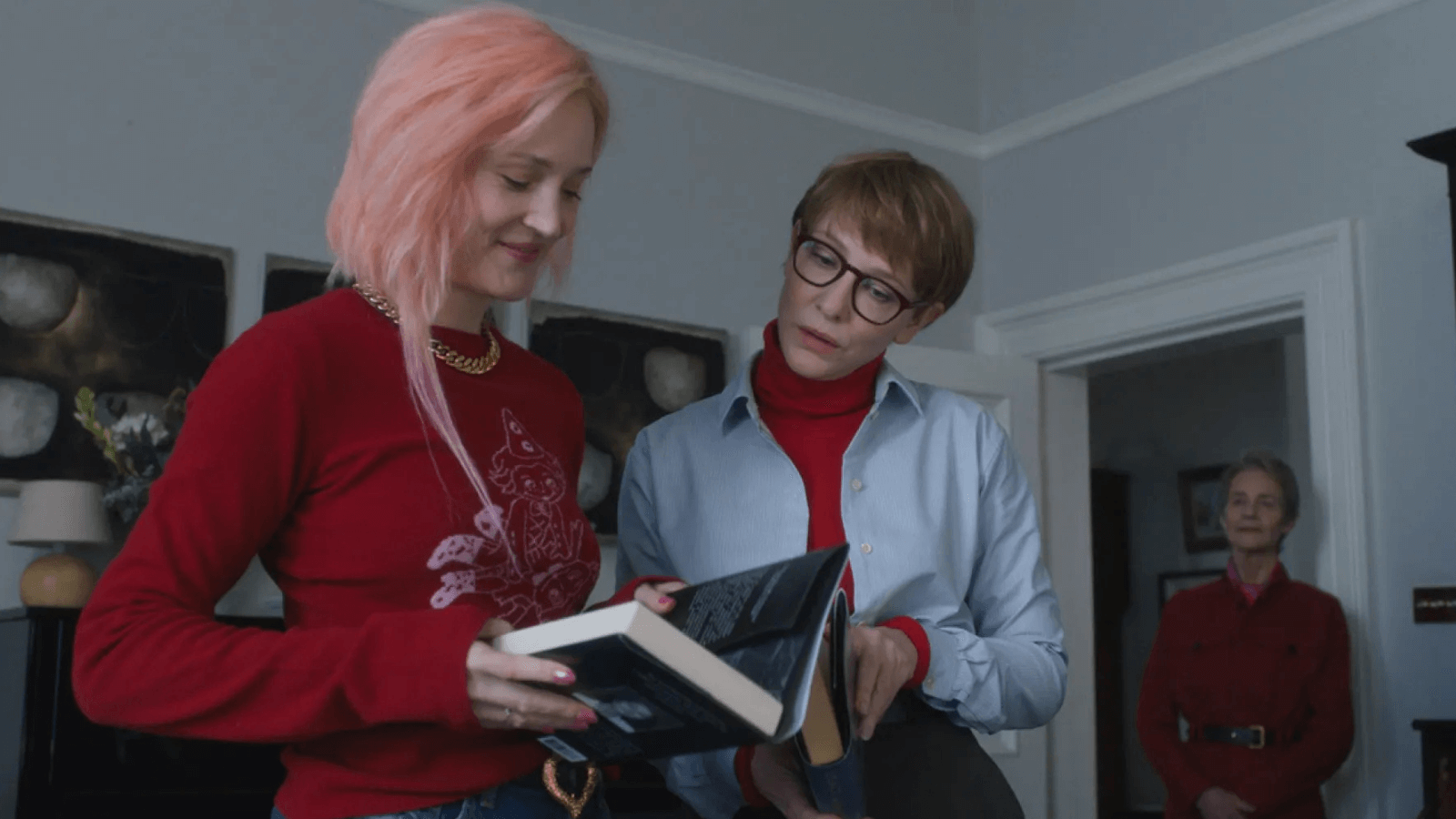
Zurich Film Festival Dispatch – Part 2
By David Hill | October 4, 2025
The 21st Zurich Film Festival runs from September 25 to October 5. Check here for the full lineup. Some films mentioned below will be reviewed separately in full-length writeups, but for now, here are some initial impressions. Also, check out Part 1.
Father Mother Sister Brother
Gala Premieres
Father Mother Sister Brother is the new film by Jim Jarmusch. It had been a while since we got a new feature from the cult indie director, with his previous one being 2019’s The Dead Don’t Die. He has not been inactive in the years between, though. Among other things, he wrote and directed a short film for Yves Saint Laurent in 2021, and his band Sqürl released their debut studio album in 2023.
Jarmusch’s new film had its world premiere at the Venice Film Festival in August, where it won the Golden Lion. This might lead people to believe that Jarmusch has returned to feature filmmaking with a bang, but that would be the wrong impression of Father Mother Sister Brother. Stylistically and tonally, the film is similar to his 2016 feature Paterson, and it very much plays in a minor key. It is a quiet and understated anthology comedy-drama that presents variations on the theme of family in three different chapters.
The first chapter, entitled Father, is set in the Northeastern USA and follows two siblings (Mayim Bialik and Adam Driver) who visit their estranged father (Tom Waits—priceless). Although there is no open conflict between the characters, their interactions are awkward, and their gestures and glances reveal a lot of unspoken and unresolved feelings beneath the surface.
Mother, the film’s second chapter, again depicts two siblings visiting one of their parents. This time, the setting is Dublin, and the characters in question are two sisters (Cate Blanchett and Vicky Krieps) and their mother (Charlotte Rampling). We learn that although the sisters moved to Ireland to be close to their mother, they only see her once a year for afternoon tea. Like in the first chapter, the family members are estranged and their interactions awkward, but the dynamics are different. Take the mother played by Rampling, who is an uptight novelist and clearly has more than enough money, whereas the father played by Waits appeared scruffy and poor.
The film’s third and final chapter, Sister Brother, takes place in Paris. Unlike the previous chapters, it shows a warm and healthy family relationship between two twins (beautifully portrayed by Indya Moore and Luka Sabbat). The reason for their reunion is tragic, however, as they meet in the wake of their parents’ unexpected death in a plane crash. While going through their late parents’ belongings, they learn things about them they had never known. Through this, the film reintroduces the theme of the unknowability of one’s own parents, which was also at the forefront of the earlier chapters.
There are several motifs and symbols that echo across all three stories—such as Rolex watches (real or fake), toasting (and whether it’s acceptable to toast with non-alcoholic beverages), water, matching colors in family members’ clothes, the English idiom “Bob’s your uncle,” and skateboarders (perhaps embodying the generational flow of families). Father Mother Sister Brother also contains dreamy interludes before each chapter, which lull the audience into its quiet rhythm. The film’s various elements do not lead to any grand revelations, but they add up to a rich and mature portrait of families.
Father Mother Sister Brother is unmistakably a Jarmusch film. It has a measured pace, dry humor, and silences that carry as much weight as the dialogue. While it might not reach the heights of his very best work, it is a worthwhile addition to his filmography and provides a welcome respite from the frantic pace of modern life. Despite seeing it back-to-back with noisier titles at ZFF, it has lodged itself in my mind, and I still feel its afterglow days later. Hopefully, we will not have to wait another six years for Jarmusch’s next feature. 3.5/4 Stars
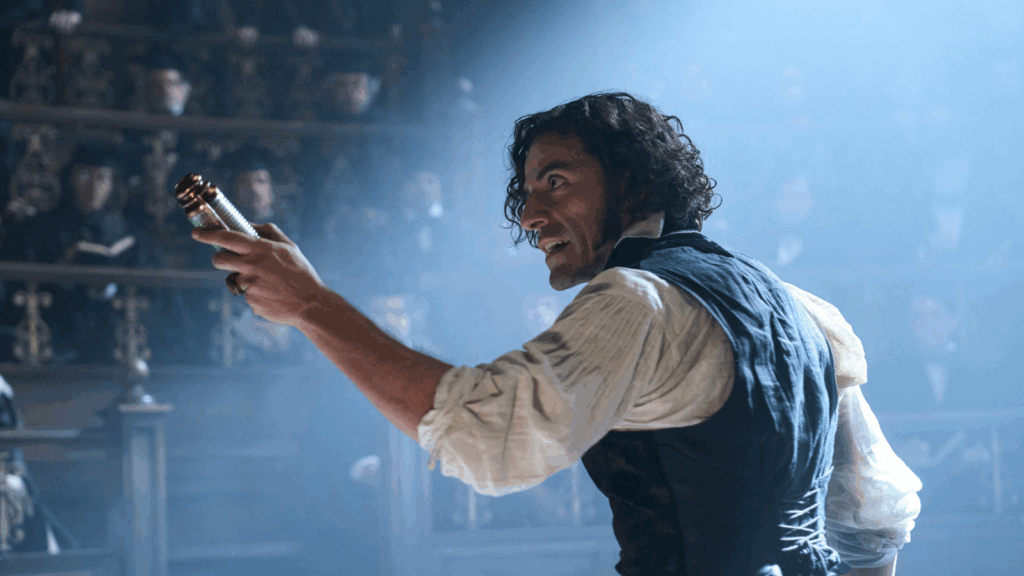
Frankenstein
Gala Premieres
Horror grounded in emotional realism, a sympathetic monster, and gorgeous gothic imagery—Frankenstein contains all the elements that make a great Guillermo del Toro film, but compared to the director’s best work (Pan’s Labyrinth, The Shape of Water), something is missing. His new film suffers from pacing issues and does not fully earn its 149-minute runtime. After an eventful prologue throws the viewer right into the action, the film flashes back to a dry, exposition-heavy, and overly long section from the perspective of Victor Frankenstein (Oscar Isaac).
That said, once Frankenstein shifts its perspective to the monster (Jacob Elordi—outstanding), it comes to life and rewards the viewer’s patience. Thanks to this and the film’s impressive production values (a few instances of unconvincing visual effects notwithstanding), it ultimately makes for a satisfying experience despite its flaws. Frankenstein may not rank among del Toro’s best, but it is unmistakably his work—darkly beautiful, deeply felt, and unlike anything anyone else would have made. 3/4 stars
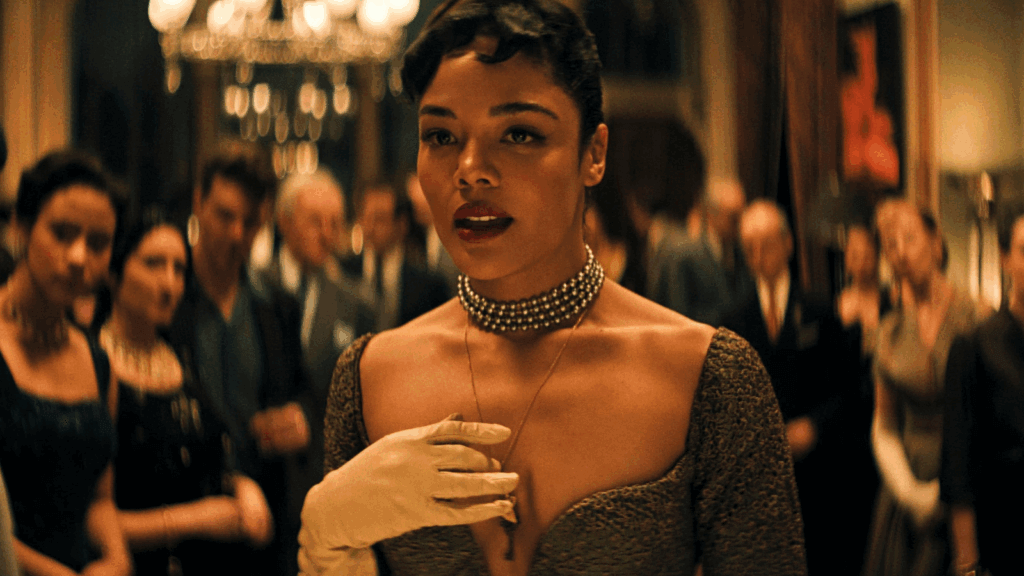
Hedda
Gala Premieres
Nia DaCosta’s Hedda is a modern reimagining of Henrik Ibsen’s late 19th-century play Hedda Gabler. In her loose adaptation, DaCosta changes the character Eilert Lövborg to a woman named Eileen Lövberg (Nina Hoss) and gives the material a queer spin. Set in England in the 1950s, the film depicts a party in the stately home of Hedda (Tessa Thompson) and her husband (Tom Bateman). Things quickly spiral out of control as desires, rivalries, and betrayals come to the surface.
Hedda is stylishly shot by cinematographer Sean Bobbitt (12 Years a Slave). In what must be an homage to Spike Lee (Do the Right Thing), it even makes effective use of the latter’s signature double dolly shot to introduce Lövberg. Thanks to Bobbitt’s work and the film’s unsettling sound design, Hedda feels cinematic despite being based on a play and mostly confined indoors. It also features committed performances from Thompson and Hoss.
Despite these elements, Hedda feels lifeless for large portions of its runtime. It is poorly paced and takes too long to get going, and even when things escalate, its characters remain at arm’s length. While it is never boring to follow their power games, the film ultimately amounts to little. It hints at interesting themes such as women’s oppression, social facades, and sexuality, but the exploration remains surface-level and offers little substance. For all these reasons, watching Hedda was an underwhelming experience that never truly grabbed me. 2/4 stars
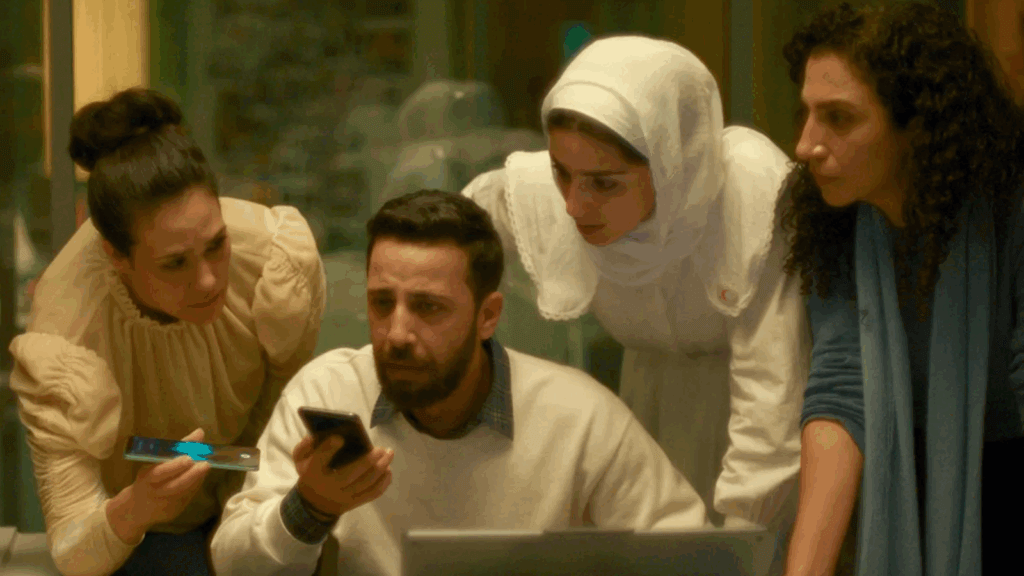
The Voice of Hind Rajab
Border Lines
In 2024, Tunisian director Kaouther Ben Hania (The Man Who Sold His Skin) put another project on hold to make the urgent The Voice of Hind Rajab. The film, which recently won the Grand Jury Prize at Venice, is about a tragic real-life event that happened in Gaza on January 29, 2024. That day, the Palestinian Red Crescent received an emergency call from a six-year-old girl named Hind Rajab who was trapped in a car hit by Israeli forces.
Like Ben Hania’s excellent last film, Four Daughters, The Voice of Hind Rajab blends documentary and fiction elements. It reenacts and dramatizes the event from the perspective of the Palestinian Red Crescent staff, as they do everything they can to save the little girl. Simultaneously, the film uses the recordings of the real-life Hind Rajab, which means that the titular voice we hear on the phone is not reenacted.
Much to the frustration of both the Palestinian Red Crescent staff and the viewer, they must carry out a time-consuming process called “coordination” before they can send an ambulance to rescue Hind Rajab. This means going through various intermediaries to receive confirmation from the Israeli forces that the ambulance will not be targeted during the operation. While they wait several hours for a green light, both Hind Rajab and the staff become increasingly desperate.
Watching The Voice of Hind Rajab, which takes place almost exclusively in the Palestinian Red Crescent office, is a harrowing and claustrophobic experience. Ben Hania shoots the reenacted scenes in a documentary style with a handheld camera that remains tight on the actors’ faces. Despite strong direction and performances, the film’s reenactments are not as successful as its documentary elements. Toward the end of the film, conflicts among the Palestinian Red Crescent staff escalate in a manner that feels overly dramatized and does not always ring true.
The strength of the film’s documentary elements more than makes up for this, though. Hearing the actual voice of Hind Rajab and seeing real-life photos of her is deeply moving. Moreover, the film closes with a gut-punch of an ending that shifts from the reenactments to powerful documentary footage and leaves the viewer shaken. With The Voice of Hind Rajab, Ben Hania has created a devastating film that takes a vital and unflinching look at the atrocities committed in Gaza by Israeli forces. 3.5/4 stars
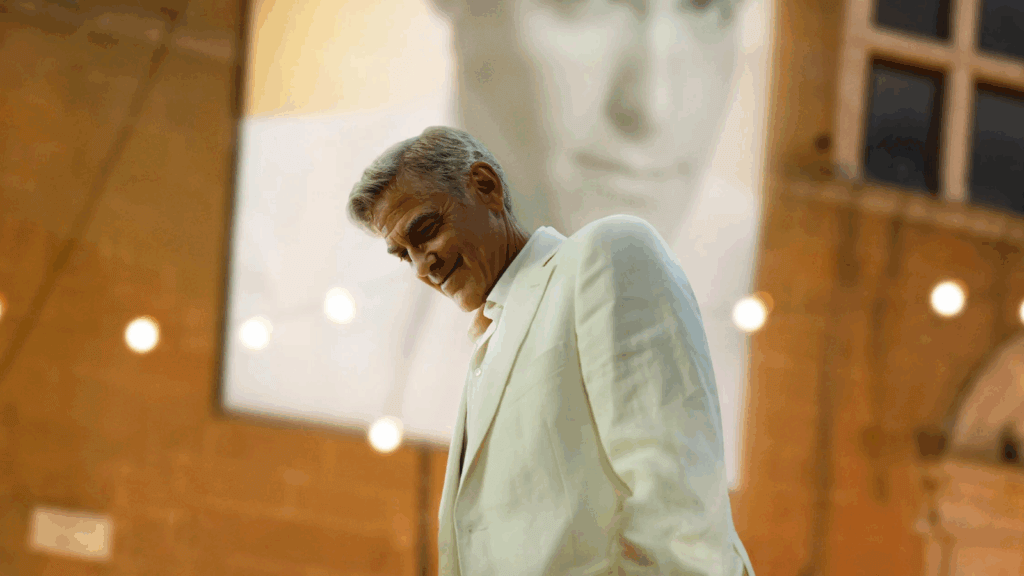
Jay Kelly
Gala Premieres
Noah Baumbach’s latest opens with a quote from Sylvia Plath, which perfectly encapsulates the themes it explores: “It’s a hell of a responsibility to be yourself. It’s much easier to be somebody else or nobody at all.” The film follows an aging movie star, the titular Jay Kelly (George Clooney). After the death of his mentor (Jim Broadbent) and an unpleasant encounter with his former acting buddy (Billy Crudup), he begins to grapple with a growing emptiness behind his public persona. On a whim, Kelly decides to travel to Tuscany to accept an honorary award he had previously declined. Joining him is his entourage, which includes his loyal manager (Adam Sandler) and publicist (Laura Dern). Along the way, Kelly questions his legacy and the choices he has made, such as letting his acting career prevent him from spending much time with his daughters (Grace Edwards and Riley Keough) when they were little.
Jay Kelly is a wistful film that celebrates filmmaking and movie stars while also commenting on the personal cost that famous actors and those around them must bear. The latter aspect is rather tame, however—while the film brings up interesting ideas, their exploration mostly remains surface-level. Consequently, the celebratory element is at the forefront, and the film sometimes risks becoming overly sentimental. Thankfully, strong performances from the impressive cast—which also includes Patrick Wilson, Greta Gerwig, Alba Rohrwacher, Lars Eidinger, and co-writer Emily Mortimer—help ground it. Because of this and Baumbach’s assured direction, Jay Kelly makes for an engaging and satisfying watch despite feeling slight. 3/4 stars
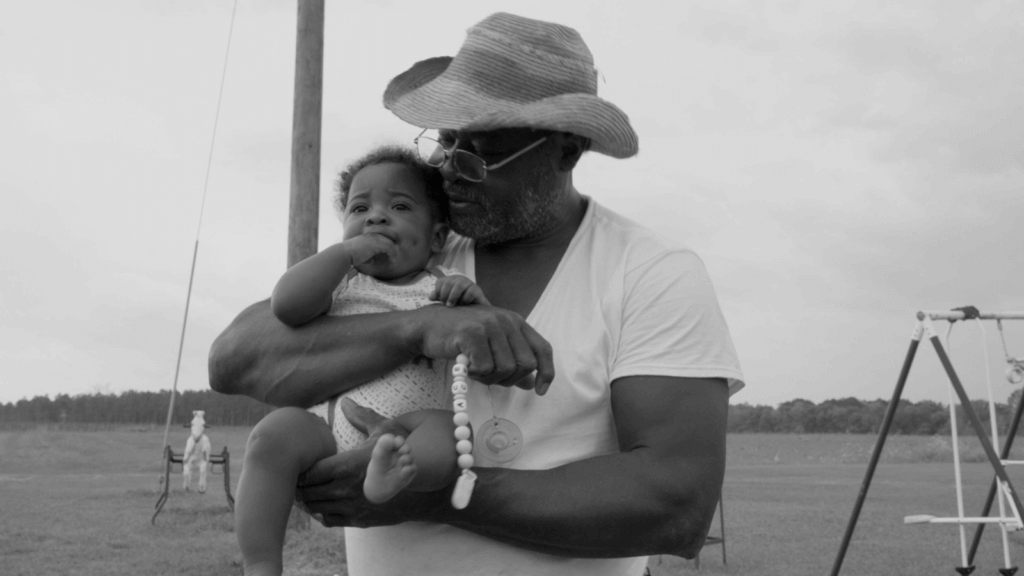
Seeds
Documentary Competition
The winner of the Grand Jury Prize for Best Documentary at Sundance this year, Brittany Shyne’s feature debut Seeds is a poetic film about Black farmers in the American South. Gorgeously shot in black and white by Shyne herself, it unfolds at a calm, contemplative pace. The film follows different generations of farmers as they struggle to hold onto land and legacy in the face of systemic inequality. Through intimate vignettes of the everyday, Seeds paints a rich and moving portrait of both the beauty and the hardships of a disappearing way of life.
Seeds is an observational documentary that features neither voice-over narration nor title cards, though its subjects do sometimes directly address the camera. With its 123-minute runtime, measured pace, and loose narrative, it may test the patience of some viewers. However, those who can get on the film’s wavelength will be as immersed and mesmerized as I was. The film’s stunning imagery is complemented by a haunting, ethereal score used sparingly but effectively. Together with the powerful subject matter, Shyne’s artful filmmaking makes Seeds a deeply rewarding cinematic experience. 3.5/4 stars

David Hill is a lawyer from Switzerland. He has long had a passion for cinema, and he devotes most of his spare time to watching and researching films. His primary interest focuses on arthouse films, and he occasionally contributes to Deep Focus Review as a guest writer.
Thank You for Supporting Independent Film Criticism
If the work on DFR has added something meaningful to your love of movies, please consider supporting it.
Here are a few ways to show your support: make a one-time donation, join DFR’s Patreon for access to exclusive writing, or show your support in other ways.
Your contribution helps keep this site running independently. However you choose to support the site, please know that it’s appreciated.
Thank you for reading, and for making this work possible.
Brian Eggert | Critic, Founder
Deep Focus Review




